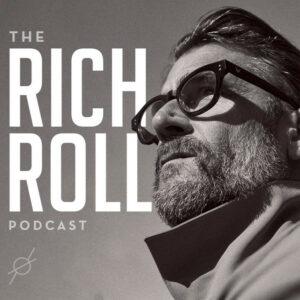
In this episode of the Impact Theory podcast, host Tom Bilyeu welcomes biologist Robert Sapolsky to discuss the concepts of god, purpose, and free will. Sapolsky challenges the notion of free will and explores how external circumstances and prior experiences shape our behavior. He emphasizes the importance of understanding human biology and leveraging it to encounter fruitful ideas for positive change. The conversation delves into topics such as gratitude, entitlement, societal values, and the complexities of human behavior.
Robert Sapolsky challenges the common belief in free will, arguing that change occurs due to external circumstances and prior experiences, not through the exercise of free will. While people can be changed by circumstances and modify their behavior, this does not equate to free will. Understanding the concept of free will and its implications is crucial for personal growth and self-reflection.
Sapolsky highlights the profound impact that biology and ideas have on shaping our lives. By encountering new ideas and expanding our frame of reference, we can experience significant positive changes in various aspects of life, including emotional well-being, financial success, and overall quality of life. Sapolsky sees himself as a change agent, carrying ideas that can transform others’ lives, and emphasizes the importance of exploring and leveraging biology to encounter fruitful ideas for positive change.
Blaming, judging, feeling entitled, and being self-satisfied do not align with the understanding of how biology and environment shape who we are. Sapolsky explores the evolutionary reasons behind certain behaviors and highlights the privilege and luck that many individuals have in life. Recognizing the role of biology and external factors can help foster gratitude and a more realistic perspective on personal accomplishments and societal disparities.
Building self-esteem is essential for motivation and putting shortcomings into perspective. Sapolsky discusses the importance of understanding neurological differences, such as dyslexia, and how it can provide insight and help individuals learn more effectively. While self-esteem is beneficial for efficacy, it should not be built around things people didn’t earn but rather around actions that contribute to human flourishing and decrease human suffering.
Human behavior is complex and varies widely among individuals. Sapolsky emphasizes the need to recognize the inappropriateness of entitlement in various domains and train society to value diverse skills and abilities. Understanding the complexities of human behavior can challenge preconceived notions and promote a more inclusive and empathetic society.
Robert Sapolsky’s conversation with Tom Bilyeu explores the concepts of god, purpose, and free will, challenging common beliefs and offering insights into the impact of biology and ideas on human behavior. By understanding the illusion of free will, fostering gratitude, building self-esteem, and recognizing the complexity of human behavior, individuals can navigate personal growth and contribute to a more inclusive and empathetic society.